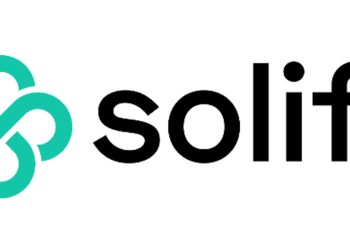The Voice Consumer Index (VCI) reveals attitudes towards voice assistants, and how seven different sectors – from retail to healthcare – can leverage the technology. The research shows that the majority of people now use voice assistant technology, with a third using it every day. The VCI clearly shows voice activity aligning with the marketing funnel: consumers move from awareness (80% search for products) to purchase (41% of users purchase using voice tech).
An international report on consumer attitudes to voice-controlled technology has been released by Europe’s leading voice agency.
Vixen Labs released the Voice Consumer Index 2021 in collaboration with the Linux Foundation’s Open Voice Network, whose members include Target and Microsoft, to explore consumer attitudes and behaviours – and to reveal the marketing potential of voice assistant technology across industries.
With Apple’s Siri initially launching in 2011, Google’s Voice Search in 2012, and Amazon’s Alexa launching in 2013, voice technology has long moved on from the early adopter stage, with 34% of UK consumers using voice assistants daily.
When analysing the reasons why people use voice assistants, it’s clear that behaviours align with the marketing funnel. Users move from awareness (80% search about products) to purchase and retention (41% of users have made a purchase through voice).
Audiences across the UK, US, and Germany were asked about their top priority voice-assisted tasks across different industries. For example, in Banking and Finance, an average of 32% across the 6,000 people surveyed identified ‘check my bank balance’ as their top priority.
Results often show small differences in behaviour between the three countries: 21% of US consumers say ‘pay a bill’ is their top Banking and Finance voice-assisted task, compared to 15% in the UK and 17% in Germany. This likelihood switches in other areas: German users are more open to using the technology to find a doctor or specialist than those from the US or UK.
To download the executive summary, white paper, and gain access to industry-specific webinars and podcasts, head to vixenlabs.co/vci-2021.

James Poulter, CEO & Co-founder of Vixen Labs, “Voice assistant technology has advanced massively since we said hey to Siri 10 years ago. The Voice Consumer Index not only highlights just how many people use the technology in everyday life but also shows that these users are eager to see its true potential.
“Parallels can be drawn from the early days of the search engine and social media to show the opportunity available to brands that utilize this technology effectively, regardless of industry. Currently, there is a lot of white space for them to move into; the customer base is ready and waiting, but in order to tap into this new marketing channel, brands need to optimise, create and integrate their products and services with voice technology.”
Methodology
The research firm Delineate conducted the Voice Consumer Index research from 14th-19th May 2021. In total 6,000 individuals aged 18+ were surveyed (2000 each in the UK, the US and Germany). Samples in each country were controlled with representative quotas among each age group, region and ethnicity in the US.
About Vixen Labs
Vixen Labs is Europe’s leading full-service voice agency. Vixen Labs works with Fortune and FTSE 500 brands to develop voice and conversational strategies, products and services to drive business value and connect with audiences in the most intuitive way possible. Its full-service offering covers voice strategy development, voice search optimisation, voice app builds, audio content, and marketing. Find Vixen Labs on LinkedIn, Twitter, and Instagram.
Other key findings of the VCI include:
- Most voice users operate the technology in multiple locations: on their phone (both in and out of the home), on smart speakers (66% use Amazon Echo), and in the car
- Privacy is the biggest concern for the public, with 4 in 10 consumers who don’t use voice assistance stating it as the main reason they have not adopted use
- Users need more support from brands and creators: the majority (76% in the UK) rely on trial and error to find the experiences they want
- Aside from controlling music (73% of users) and checking the weather (80% of users), voice assistance is used mostly to ask questions (over 90% of users have searched using voice), showing that voice assistants are a new platform for search, SEO and SEM
- Despite ongoing travel restrictions, consumers are eager to use voice search to make reservations, check hotel reviews, and research destinations (the top-priority voice-assisted task in the Travel industry is ‘searching for the best price on travel or hotel’, selected by a fifth)





